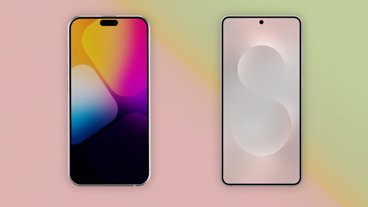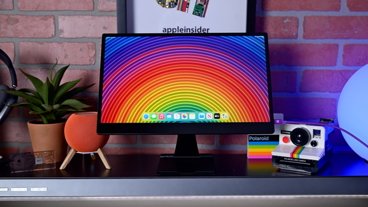Every iPhone buyer in the world may get hit with the side-effects of President Donald Trump's tariffs, as Apple may choose to hike prices everywhere to keep profit margins up.
The new 25% tariff may only have been imposed on Apple as retribution for Tim Cook declining a Trump invitation, but it's going to come into effect well ahead of the iPhone 17 launch. Just as AppleInsider did when the tariff was announced, Morgan Stanley has concluded that it's in Apple's best interests to pay the tariff rather than try to move manufacturing back to the US.
In a note to investors seen by AppleInsider, the investment firm does suggest that there could come a level of tariffs where Apple is forced to reshore to the US. That level, its analysts say, may be the 145% that Trump previously imposed on China.
But at the current rate, Morgan Stanley estimates that Apple could raise iPhone prices by 4% to 6% worldwide in order to offset Trump's US import fee. That raised profit margin outside the US would balance the lower profit margin for iPhones sold in the States.
That figure doesn't seem to take into account the effect of price rises on demand for the iPhone. Nor how in the US, all consumers and all businesses are facing the cost of tariffs, so demand for all items is under threat.
Assuming that the iPhone is a closed system, unaffected by other economic pressures on buyers, Morgan Stanley says that the opposite of global price increases is moving production to the US.
However, its analysts calculate that, for one example, an iPhone 16 Pro made in the US would be 35% more expensive. That is taking into account the hugely greater labor costs in the US compared to overseas, plus how tariffs would still be imposed on key materials and components.
Then Morgan Stanley notes that it has taken TSMC four years for its Arizona chip fab plant to be fully operational. It concludes therefore, that the first US-made iPhone couldn't be produced until after Trump leaves office.
Even all of this presupposes, though, that it is physically possible for the iPhone to be made in the US. In reality, there is not the skilled labor market needed, and there is not the infrastructure to make it happen.
Morgan Stanley also notes, though it does not explain, that moving manufacturing to the US would incur what it describes as second-order ramifications for Apple. It's likely, though, that this would include the cost of breaking existing contracts with foreign countries.
Then, too, countries such as Indonesia require a certain percentage of device components to be produced locally — or they ban sales of the iPhone.
What Apple could do instead
Morgan Stanley does suggest that Apple may have options beyond paying the tariff or reshoring to the US. Apple could — and its analysts say it should — announce moving certain other devices to the US.
Specifically, AirTags, the HomePod, and perhaps the Mac, could be announced alongside a commitment to future reshoring of other devices.
The analysts see that as giving Trump a win, and so giving Apple a respite from further tariffs.
Nonetheless, Morgan Stanley concludes that tariff costs are likely to increase beyond the $900 million Apple estimated for the next quarter. Even so, it retains its price target of $235.
 William Gallagher
William Gallagher









-m.jpg)




 Marko Zivkovic
Marko Zivkovic
 Malcolm Owen
Malcolm Owen
 Andrew Orr and Mike Wuerthele
Andrew Orr and Mike Wuerthele

 Amber Neely
Amber Neely
 Andrew Orr
Andrew Orr










27 Comments
The Trump circus is probably more concerned about the US being at the leading edge of technology. Apple should make its most sophisticated and advanced components in the US. This would probably solve everything.
Hiking internal prices (which are already higher than in the US) to make up for the margin losses in the US will put a massive damper on those non-US markets. Of course Apple knows this and will do what is best for them. However I'm really surprised that Morgan Stanley is farsighted enough to suggest such a dumb move...
I would rather pay the tariff on my iPhone as long as it’s made someplace else. This country knows how to build cars, not smartphones.
This is what happens when a baby who spits his dummy out when he doesn't get his own way is elected. That megalomaniac isn't fit to lead a Boy Scout group, let alone the USA. I wonder if Americans are regretting their choice at the polling booths yet?
To be fair: We saw price hikes coming even after iPhone 16e.